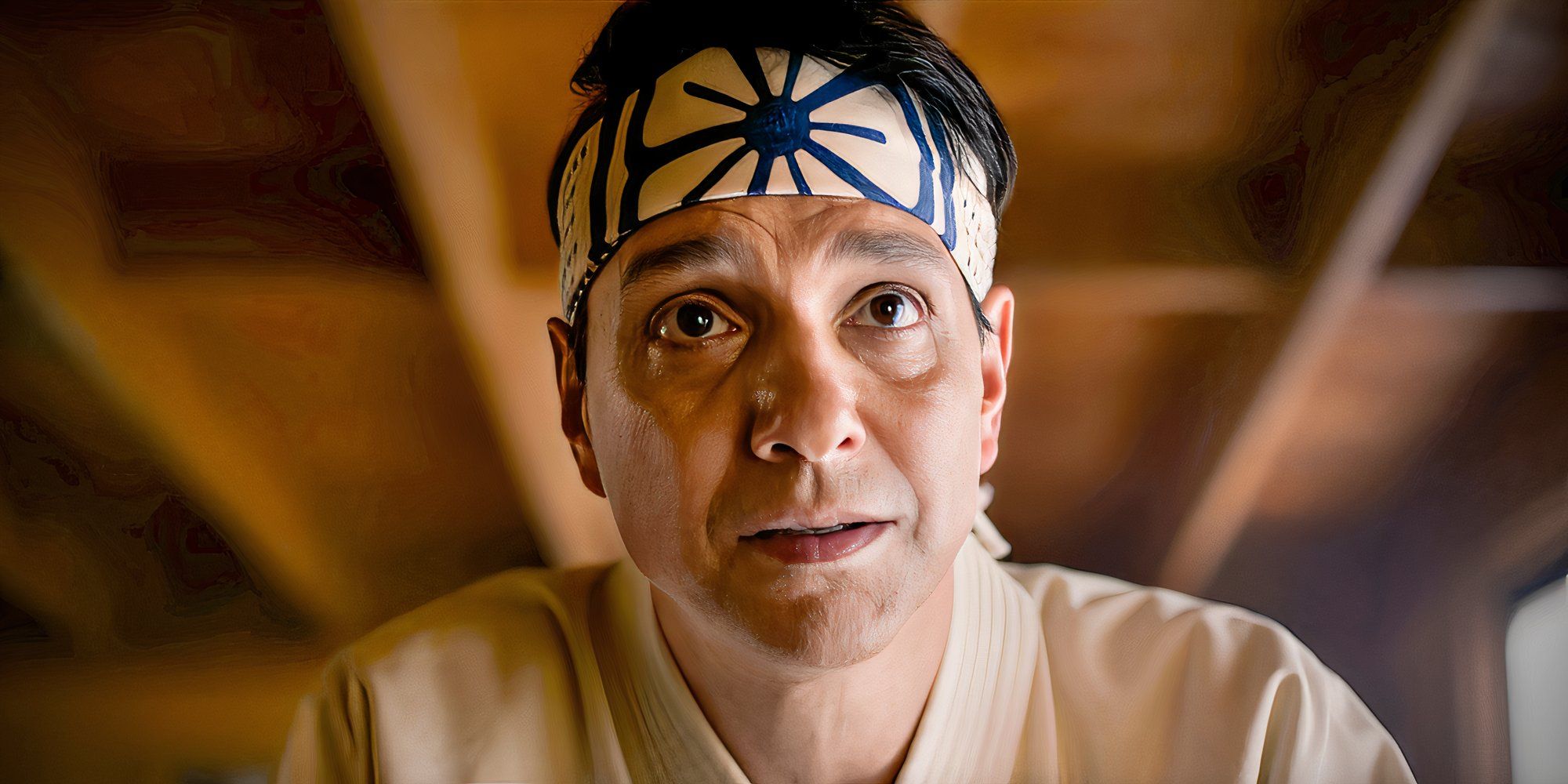
Initially, when the show “Cobra Kai” premiered in 2018, viewers often thought that Daniel LaRusso (played by Ralph Macchio) would become Mr. Miyagi’s successor due to his role as the Karate Kid and dedicated student of Miyagi-do karate under Pat Morita’s character. Since he operates a dojo based on Miyagi’s teachings, frequently quotes his mentor, and strives to follow his philosophy, it seems logical that Daniel would be the one to carry on the legacy. However, as the series unfolded, it became more apparent that maintaining tradition doesn’t always equate to truly embodying it.
In Cobra Kai, it’s not only about revisiting the past but also delving deep into it. This exploration uncovers the true inheritor of Miyagi-do’s spirit – an unexpected choice: Johnny Lawrence, the antagonist from The Karate Kid, played by William Zabka. As Johnny undergoes a transformation from bully to reluctant sensei, he embodies the qualities that Mr. Miyagi possessed. However, this transformation is not just about imitating Miyagi’s form, but rather his function. Exploring why Johnny becomes the spitting image of Miyagi’s essence underscores the remarkable storytelling in Cobra Kai, making it a worthy continuation of The Karate Kid series.
Johnny Lawrence Was The Real Mr. Miyagi In Cobra Kai
Johnny Embodies The Adaptable Spirit Of Mr. Miyagi More Than Daniel Ever Could
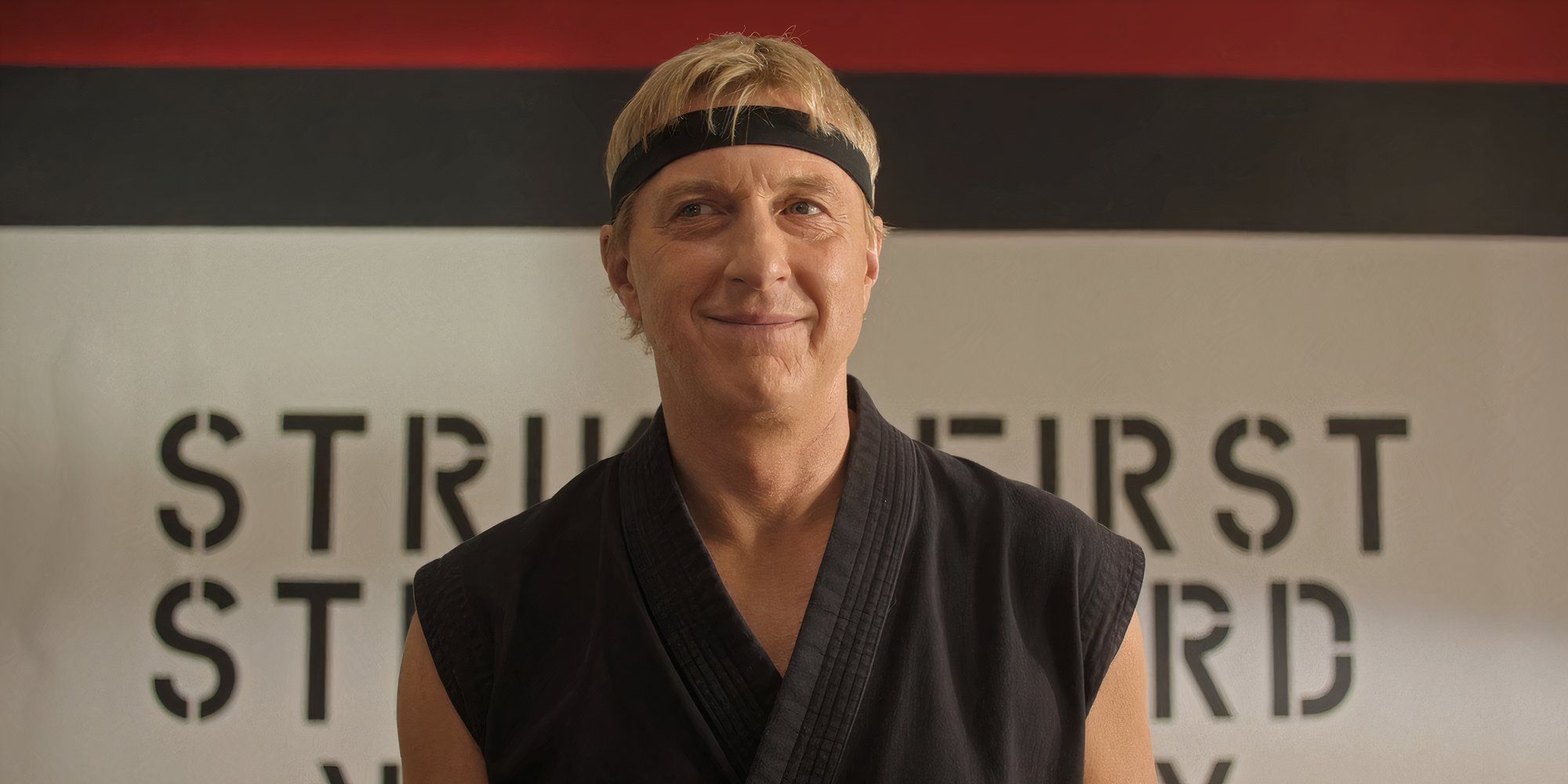
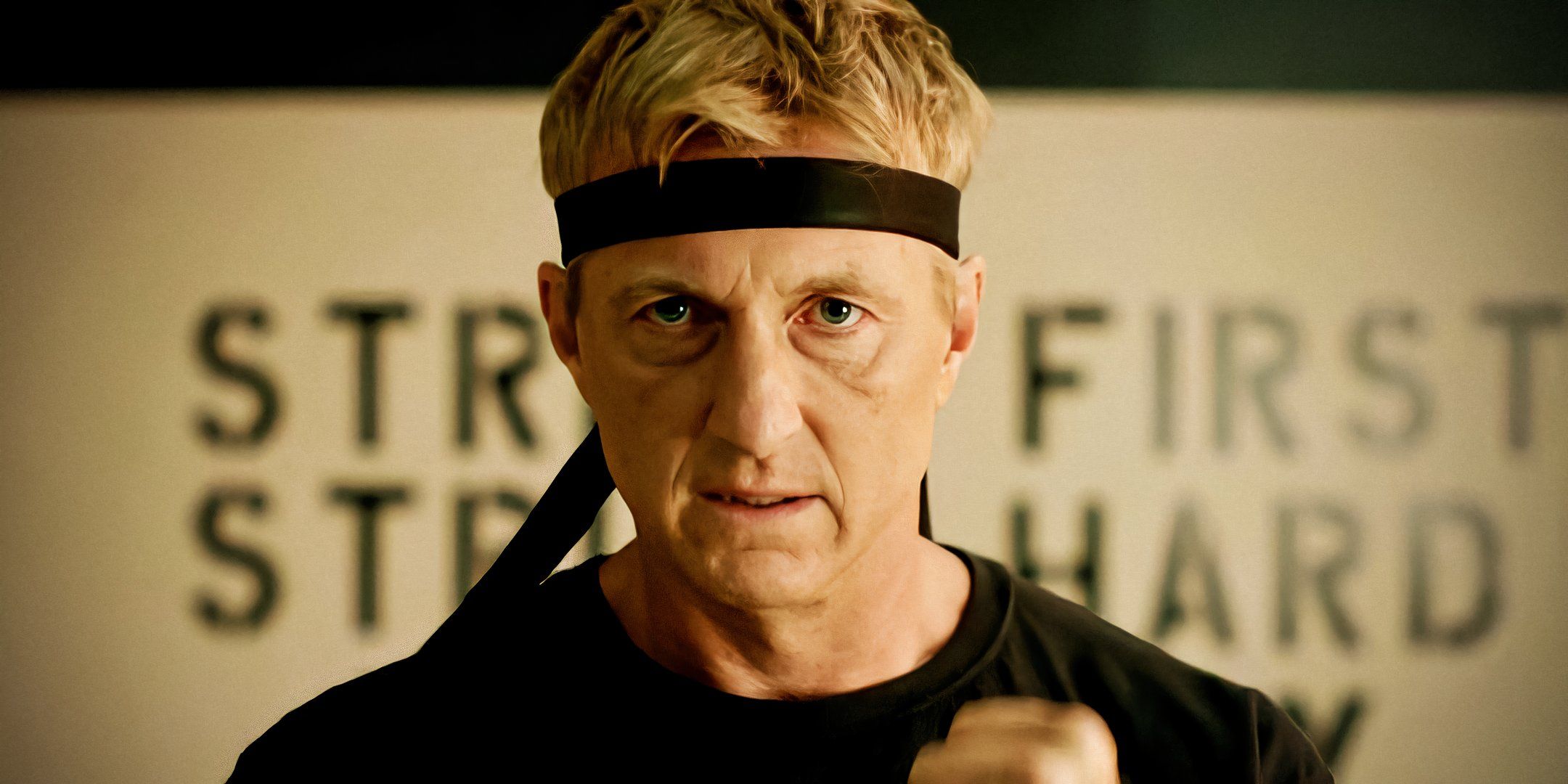
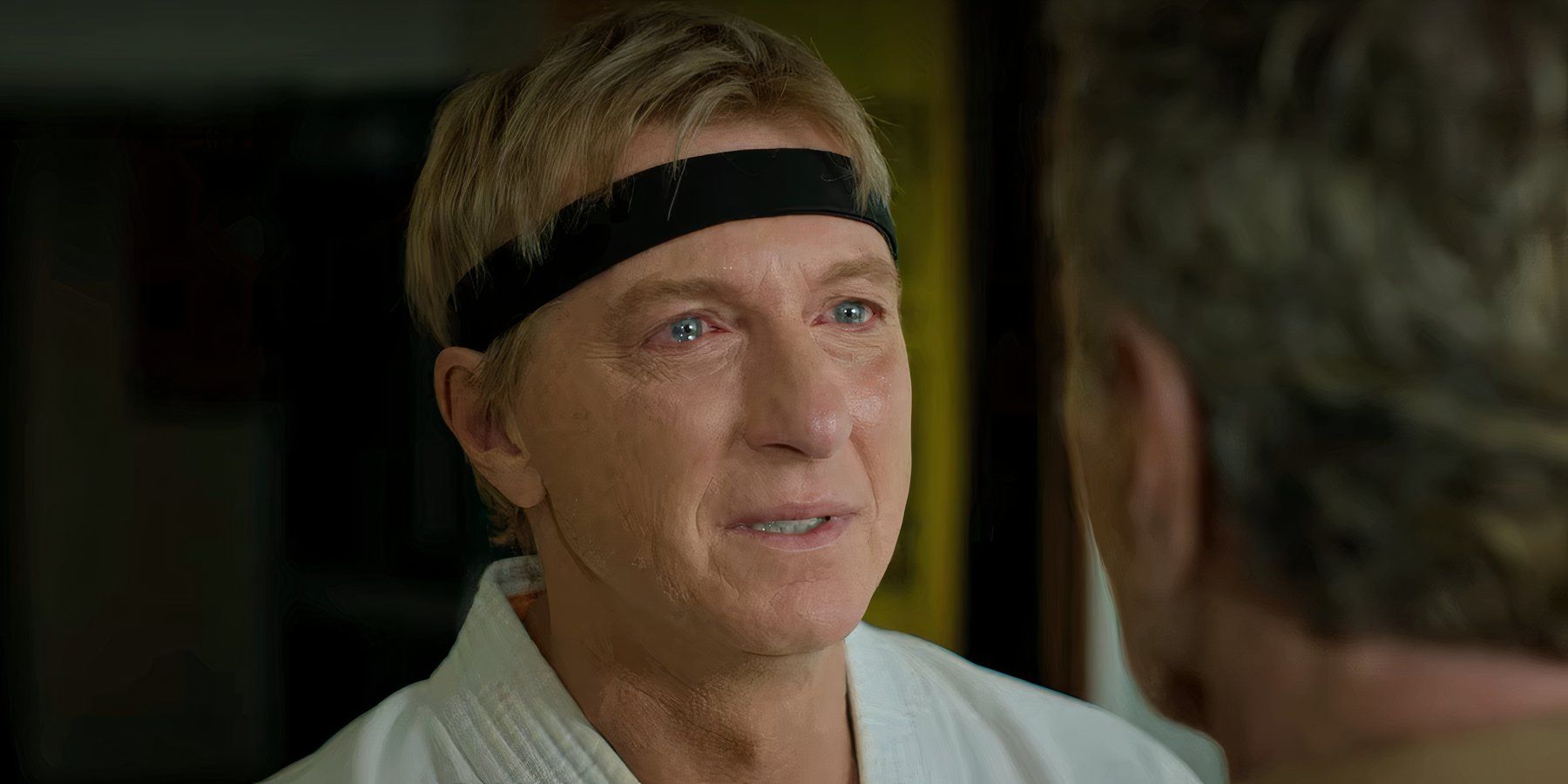

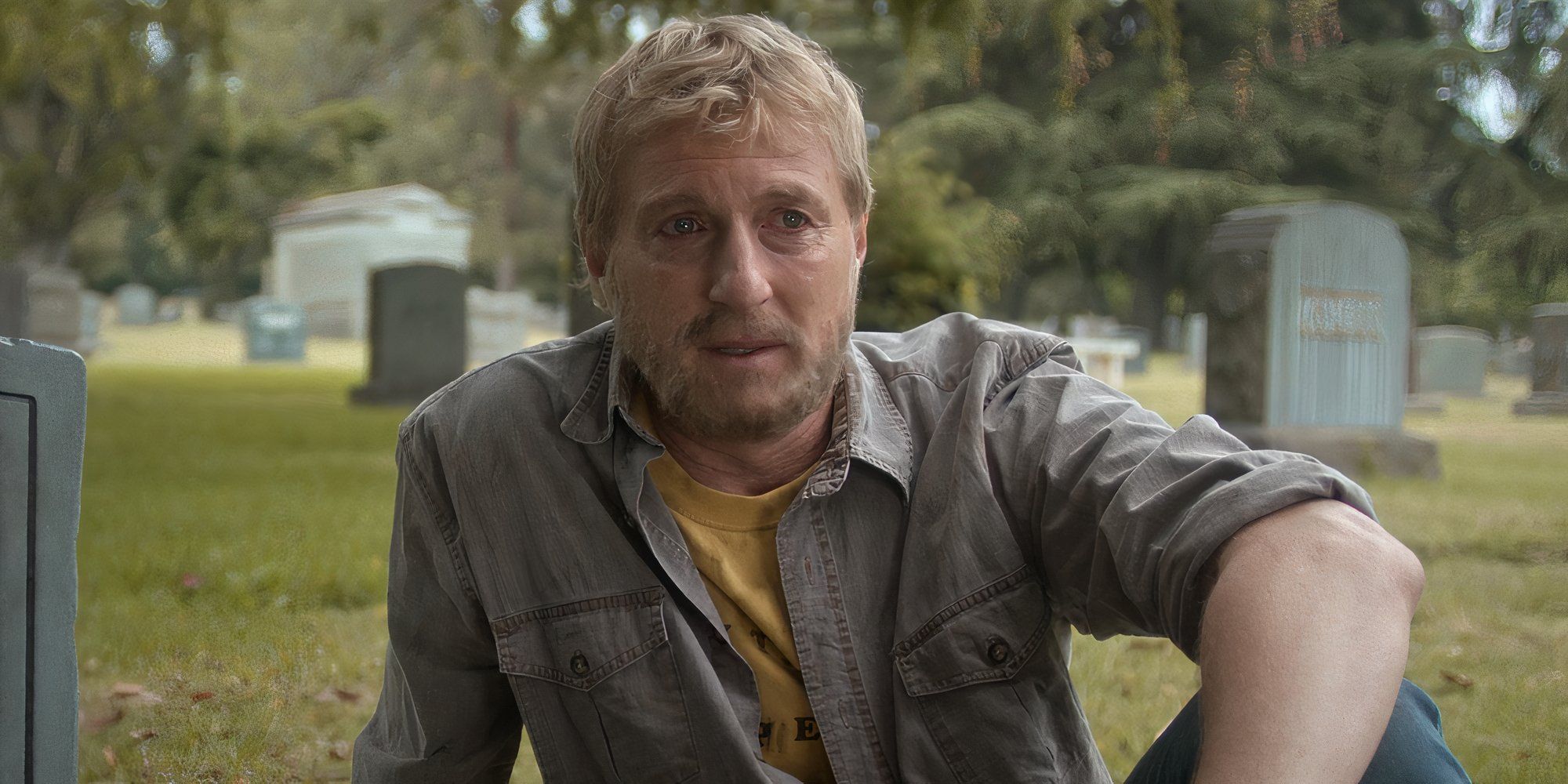
Since the debut of Cobra Kai, Johnny Lawrence’s life has been in disarray. He’s drifted apart from his son, jobless, and burdened by his past. Unlike Daniel, who kicks off the series enjoying prosperity, Johnny must restart from scratch. This struggle leads him to a journey not just for self-improvement but for assisting others – much like Mr. Miyagi did for both him and Daniel in the past. The true successor of Mr. Miyagi isn’t the one who performs his kata flawlessly, but the one who comprehends the reason karate was created to begin with.
The most remarkable aspect of Mr. Miyagi wasn’t his martial arts skills; it was his profound wisdom. He wasn’t focused on competitions or prizes. Instead, he employed karate as a means to help those who had strayed, fostering harmony and purpose. Johnny, with his rugged demeanor and old-fashioned lingo, gradually started following this path. Using his unique version of Cobra Kai, Johnny taught children who were victims of bullying, neglected, and enraged because he too had once been in their shoes. His teaching style was aggressive, yet it evolved. He adapted. He listened. He changed. In contrast, Daniel remains rooted in the past, revering Miyagi’s teachings without truly grasping their adaptability.
In the world of Cobra Kai, Johnny doesn’t stick rigidly to tradition; instead, he reinvents it, much like Mr. Miyagi did when he adapted his father’s Okinawan karate for a new era. He makes it personal and practical, fitting Daniel’s circumstances and challenges, just as Miyagi did with his own teachings. Despite Johnny’s initial hot-headedness, he demonstrates the same potential for growth. By merging old-school discipline with modern empathy, he develops a karate style suitable for a new generation. Essentially, Johnny follows in Miyagi’s footsteps by reinventing the art of karate, rather than merely preserving it.
Cobra Kai Season 1 Flipped The Premise Of The Karate Kid
Johnny Takes On The Role Of Underdog While Daniel Becomes The Antagonist

The inaugural season of Cobra Kai laid the foundation for a daring reinvention of The Karate Kid. Instead of just celebrating the past, it added layers to it by depicting Johnny Lawrence’s descent rather than Daniel LaRusso’s continued glory. It was Johnny who found himself in desperate need of help, and his quest for salvation led him back to karate – the very thing that had previously brought him down. This shift in narrative perspective significantly changes the dynamic between the two characters, portraying Johnny as a sympathetic figure while Daniel becomes an obstacle in his path.
In the series Cobra Kai, it’s quite a significant shift in character development when we consider that the successor to Mr. Miyagi would naturally have to tread a path similar to Miyagi’s – one marked by redemption, tranquility, and humility. Initially, Daniel appears arrogant, dismissive, and overprotective of his beliefs about Miyagi-do. Conversely, Johnny takes on the role of mentor for Miguel, a young man lacking direction, much like Daniel himself once was. As Johnny guides Miguel, he rediscovers his personal goals and uncovers a new self beyond the Cobra Kai tormentor he used to be.
The difference between Daniel and Johnny is quite noticeable. While Daniel holds onto a romanticized version of his past with Mr. Miyagi, he’s so focused on preserving Miyagi-do that he overlooks what initially made it valuable. On the other hand, Johnny is forging something novel, even though it’s rough around the edges; he’s learning and growing. In this process, Johnny seems to embody Mr. Miyagi’s spirit more than Daniel does. The first season of Cobra Kai transcends being just a sequel; it serves as a fresh take on the storyline from The Karate Kid. Interestingly, it’s not from Mr. Miyagi’s dojo where his successor arises, but rather from the embers of his old foe’s remorse.
Daniel Spent Too Much Time Trying To Copy Mr. Miyagi’s Lessons
Daniel Tried To Preserve The Past Instead Of Evolving Like Mr. Miyagi Once Did
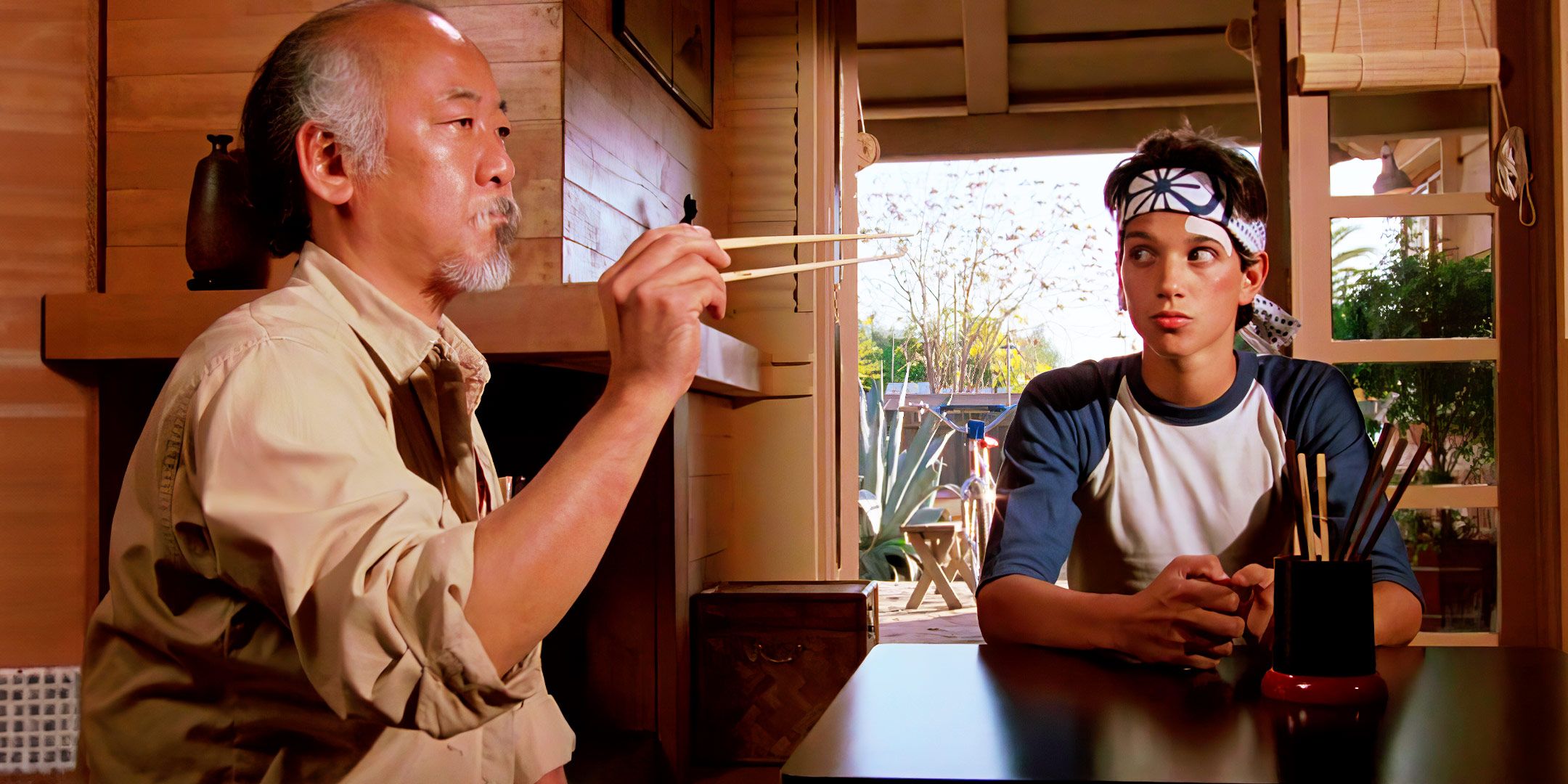
In the TV series Cobra Kai, Daniel LaRusso truly meant well in his attempts to honor Mr. Miyagi, but good intentions don’t always guarantee success. What sets Daniel apart is that he views karate as something to be conserved rather than experienced. He treats Miyagi-do like a sanctuary – reverent, untouchable, and unchanging over time. However, it’s essential to remember that Mr. Miyagi didn’t receive a flawless system; instead, he crafted one tailored to Daniel’s unique situations. Unfortunately, Daniel overlooks this crucial fact. Instead of modifying Miyagi’s teachings to fit the modern era and new students, he repeats them, assuming what worked for him would work for everyone else.
Johnny doesn’t simply mimic the past like Daniel; instead, he redefines it. While Daniel adheres strictly to his master’s teachings and methods, Johnny is innovating. He transforms Eagle Fang Karate into more than just a martial arts school; it becomes a philosophy – a blend of power and empathy born from his personal journey. Unlike the bonsai tree in the corner, Johnny doesn’t have, but he grasps what Mr. Miyagi was truly trying to achieve: helping someone discover harmony by fostering self-belief.
Daniel’s reluctance to adapt comes at a cost, as his inflexible teaching methods often leave his students struggling and himself in conflict with others due to his unwavering belief in his own righteousness. In contrast, Johnny, despite his flaws, is open to collaboration and change. He learns from his mistakes, grows, and adapts – embodying the core principles of Mr. Miyagi’s teachings: growth, humility, and adaptability. The true successor of Mr. Miyagi in “Cobra Kai” isn’t one who clings to the past, but rather one who moves forward – a path that Johnny Lawrence has chosen to tread.
Read More
- Grimguard Tactics tier list – Ranking the main classes
- Gold Rate Forecast
- 10 Most Anticipated Anime of 2025
- USD CNY PREDICTION
- Box Office: ‘Jurassic World Rebirth’ Stomping to $127M U.S. Bow, North of $250M Million Globally
- Silver Rate Forecast
- “Golden” Moment: How ‘KPop Demon Hunters’ Created the Year’s Catchiest Soundtrack
- Castle Duels tier list – Best Legendary and Epic cards
- Black Myth: Wukong minimum & recommended system requirements for PC
- Mech Vs Aliens codes – Currently active promos (June 2025)
2025-05-26 15:28